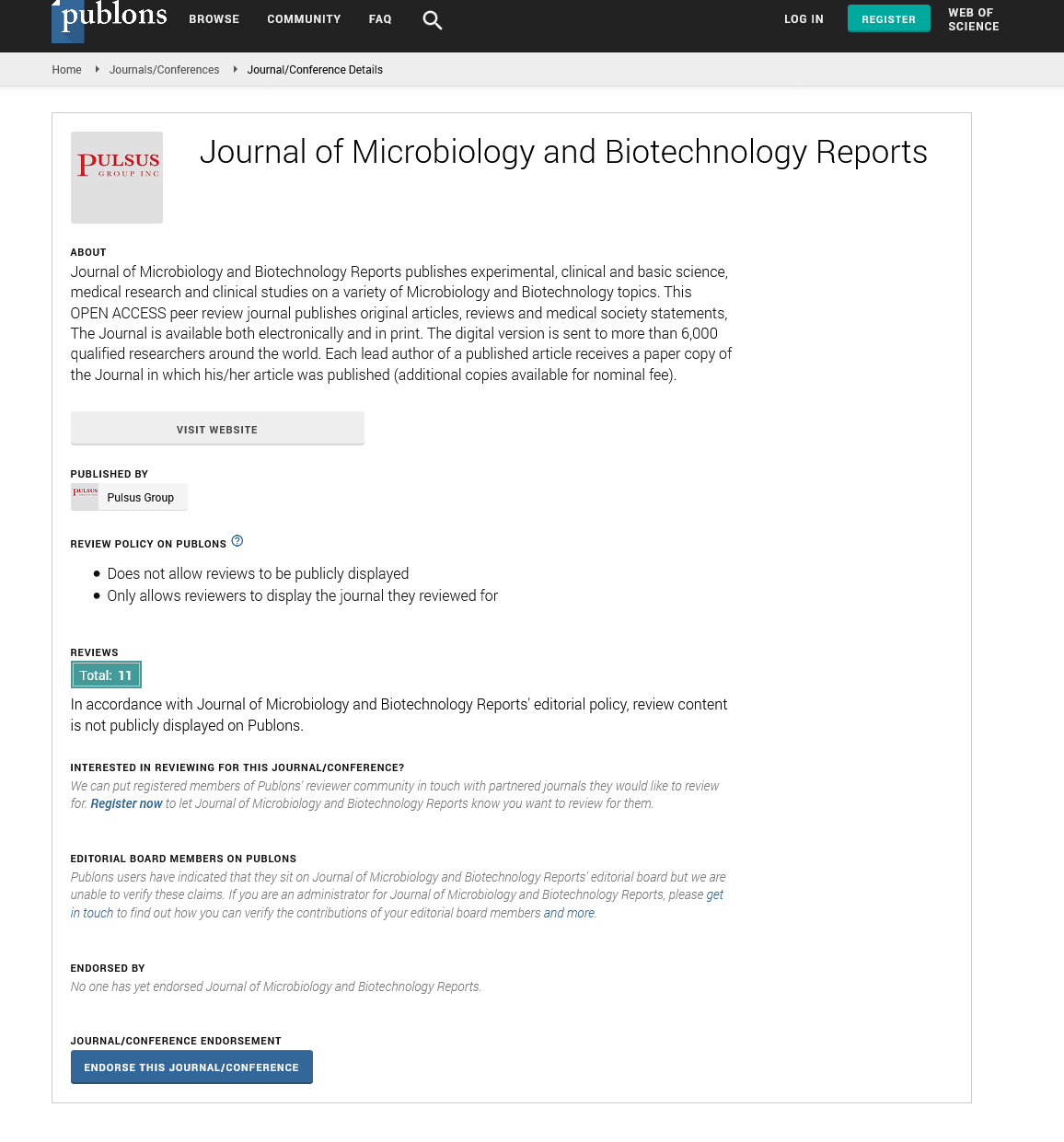
Sign up for email alert when new content gets added: Sign up
Abstract
In-vitro study showed that Tinospora cordifolia is having significant antibacterial effect against different human pathogenic strains in different dose dependent manner.
Author(s): Mohammad Nazrul Islam* and Sharmin Rumi AlimNow a day, antibiotics resistance becomes a serious health problem in the world. For this purpose, scientists are seeking effective natural medicine or antibiotic or metabolites to reduce the global health burden. They are given emphasis to conduct research on natural medicine because they know very well that nature is having all remedies of health problem. Plant based drugs are showing fewer side effects, less toxic and also cost effective. On study conducted it was found that the stems of Tinospora cordifolia were significantly efficient against Escherichia coli, Proteus vulgaris, Enterobacter faecalis, Salmonella typhi, Staphylococcus aureus, and Serratia marcesenses. Another study conducted found that T. cordifolia aqueous extracts have effective antimicrobial activity against all tested microorganisms. For example, the leaf aqueous extract of T. cordifolia exhibited maximum zone of inhibition against E. faecalis (28 mm) and S. typhi (26 mm) at 50 mg/ml concentration. The Tinospora cordifolia is highly efficient against Serratia marcescens, E. coli, Salmonella typhi, Streptococcus thermophilus, Fusarium oxysporium, and Aspergillus niger, but that they had no effect on Trichoderma reesei. These plants can be a source of useful drugs but further studies are required to isolate the active component from the crude plant extract for proper drug development. That’s why, we have selected a plant Tinospora cordifolia to explore the antibacterial activities against Streptococcus pyogenes, Staphylococcus aureus, Salmonella typhi, Clostridium perfringens, Escherichia coli, Vibrio cholera and Klebsiella pneumonia. It will help to combat infectious disease related mortality, morbidity, long-term consequences and also helps to play active role on antibacterial resistance.
Full-Text | PDF




